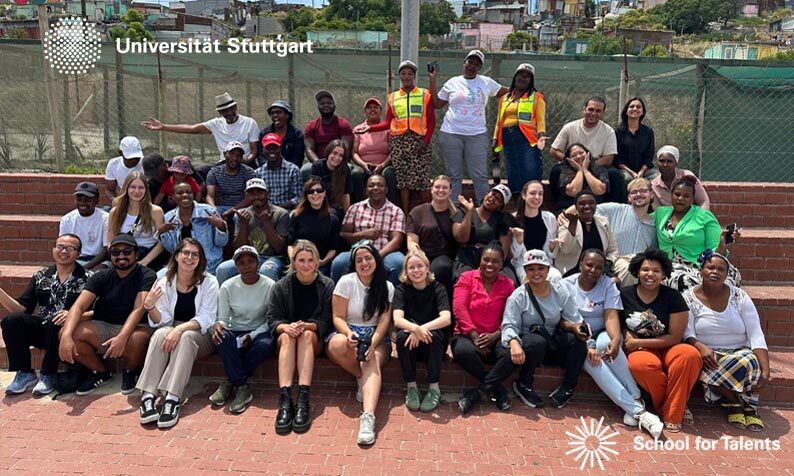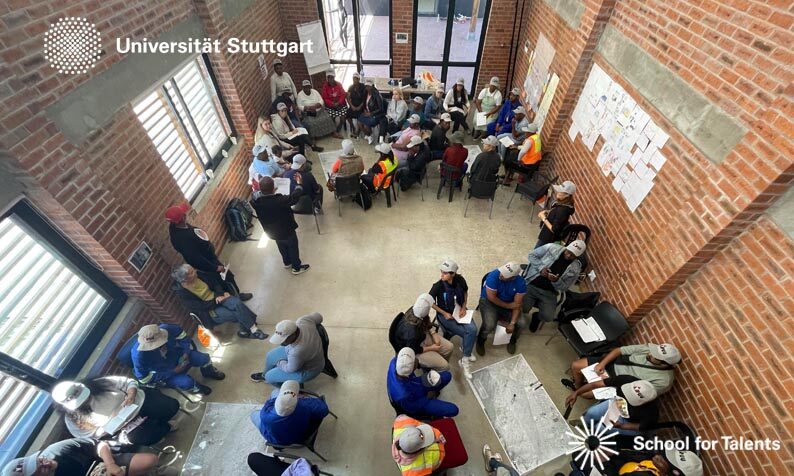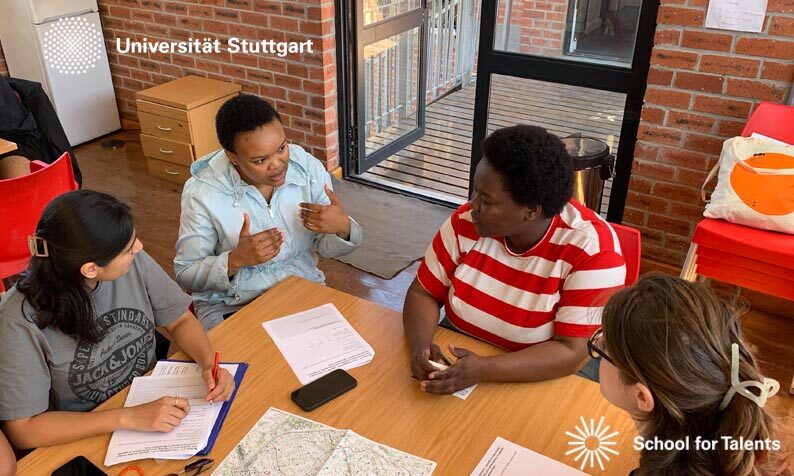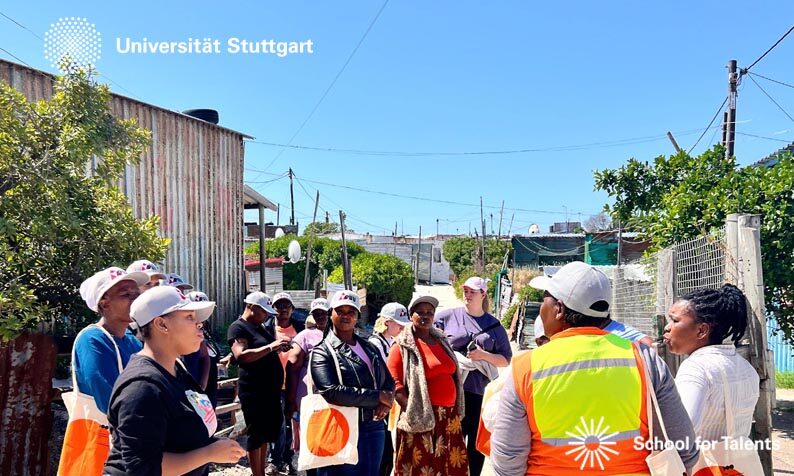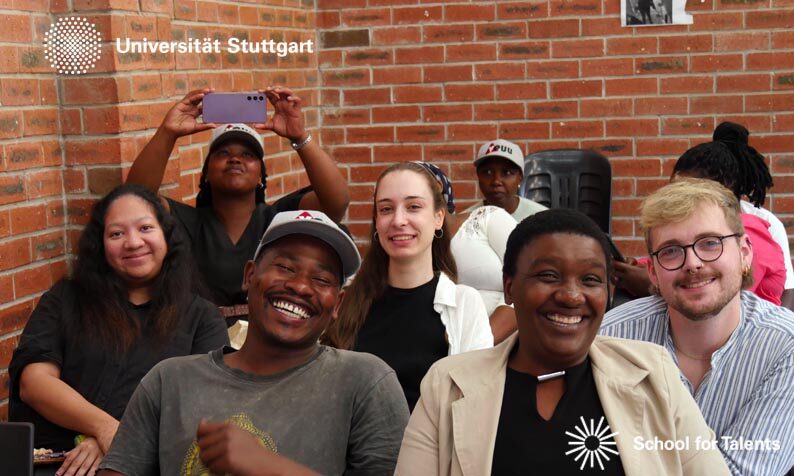The TRUE Talents project of the School for Talents brought together fourteen students from the MSc Integrated Urbanism and Sustainable Design and the MSc Architecture and Urban Planning at University of Stuttgart and residents of an informal settlement in Cape Town, South Africa, to conduct empirical field research and collaborative learning during a ‘COMMUNITY WORKSHOP’ (27.10.-03.11.2024). This enriching experience was organized in partnership with the South African non-governmental organization Violence Prevention through Urban Upgrading (VPUU) and funded by the German Research Foundation (DFG) as part of the Excellence Strategy of the German federal and state governments.
The community workshop, entitled ‘CO-PRODUCTION OF SPATIAL INTERVENTIONS’, commenced on 28 October 2024 with lectures delivered by experts at the University of Cape Town (UCT). These lectures provided the students with a theoretical basis on the specific challenges of informal settlements in Cape Town. Further insights into the subject matter of the workshop were provided by expert presentations from VPUU, in which the NGO’s CEO and project leaders presented their innovative approaches to preventing violence through co-produced urban upgrading measures in informal settlements. Equipped with this knowledge, the students proceeded to an informal settlement to deepen their understanding through direct engagement with residents, accompanied by employees of the NGO.
The TRUE Talents students engaged in focus group discussions with selected members of an informal settlement. This gave them valuable insights into a wide range of successfully implemented projects, such as community-organized social infrastructure, waste management, food cultivation and digital networking. During transect walks through the settlement, the students experienced the spatial and social structure on site and were able to get a first impression of the community-organized projects.
Based on these initial observations, the students conducted structured qualitative interviews with members of the settlement the following day. These interviews provided a detailed understanding of the community’s priorities and challenges and formed the basis for a data-driven analysis of the projects and their impact on the residents’ quality of life. In the following days, the students analyzed their findings and expanded their knowledge through additional research, project visits and expert presentations.
The community workshop concluded on 2 November with a lively feedback session at the end of the research week, where students presented their findings to the community and discussed open questions in a dialogue format at eye level with local people. This dialogue underlined the importance of validating field research with local representatives and strengthened the collaborative spirit of the workshop. When reflecting on the entire workshop process, the effectiveness of immersive, participatory research and learning became apparent. The workshop deepened the students’ understanding of urban challenges in the Global South and fostered constructive, transdisciplinary exchange between a wide range of actors and stakeholders.
